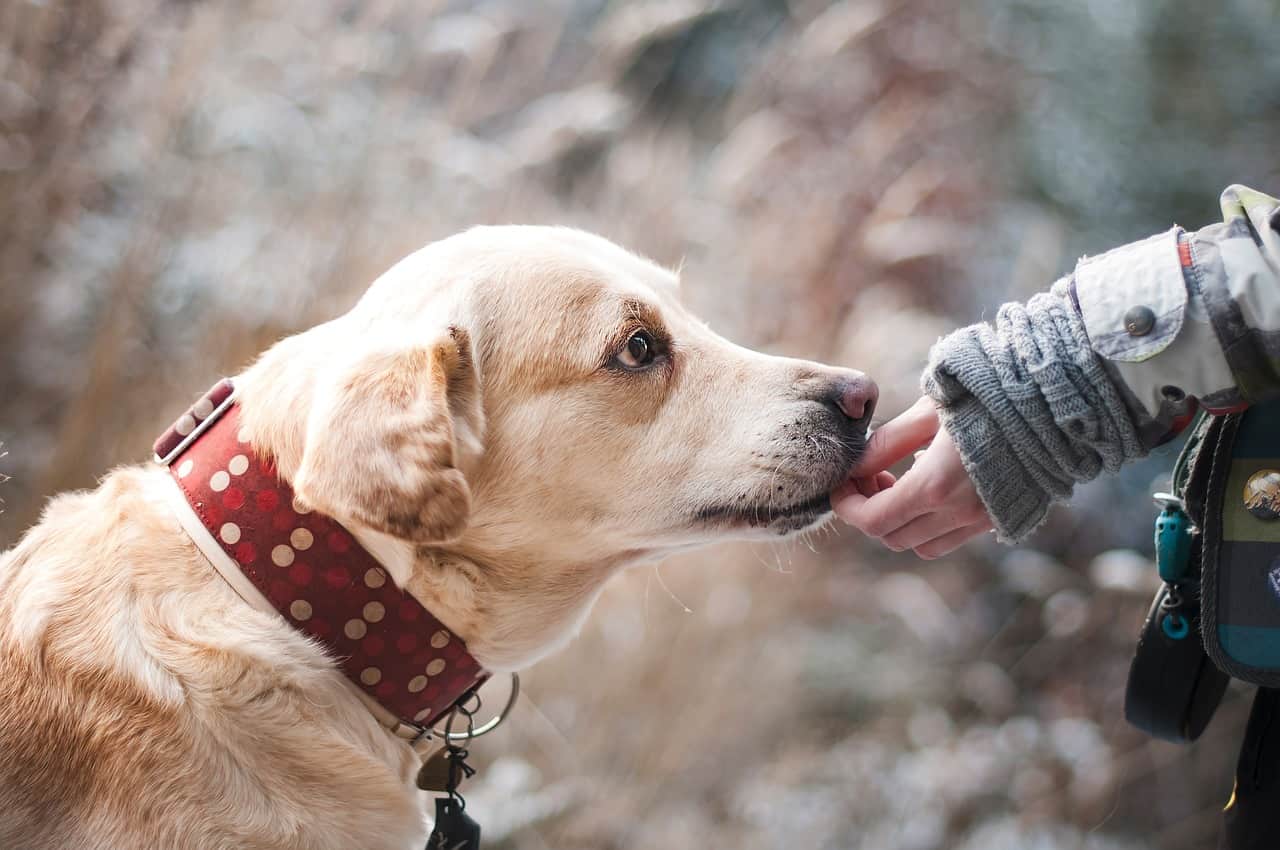With more people being home and the change of seasons, it is a common occurrence in North Carolina that family members notice that their pets are licking and chewing their feet, rubbing their face on the carpet, or shaking and scratching their heads. While some owners attribute their pet licking their feet as a “normal” behavior, it is important to note that this behavior is not normal and can be a sign of a health issue.
While humans get sniffly or sneezy during allergy seasons, cats and dogs tend to get itchy. We see allergies manifest in pets by excessive licking of the feet or paw pads, rolling on the carpet, or noticing redness or brown staining around the feet. Cats may begin obsessively grooming near the base of their tail, develop scabs around their face or ears, or on their belly or thigh area. Some symptoms are mild, happening only a few times a day, while others are more severe – keeping the pet’s owners up at night. Now that we’ve established what allergy symptoms look like in pets, we should discuss the top 3 most common causes of allergies in pets. There are multiple causes of allergies that can make your pet itch.
Surprisingly, the number one reason we see pets get itchy is due to flea allergies. Most owners, especially cat owners, are shocked to discover that the reason their pet is itchy is because of a flea bite. Allergy symptoms can be caused by a single bite, rather than a true infestation, which can make the realization difficult to conclude. In North Carolina, we see fleas and ticks thriving all year long, which can lead to allergies year round. Because of this extremely common cause, it is important to keep your pet on regular flea and tick and heartworm prevention to help reduce their risk of triggering an allergy flare.
If your pet is diagnosed with a flea allergy by your veterinarian, it is important to discuss household changes that will be needed to prevent recurrence. Because of the flea life cycle, if measures are not taken to remove flea eggs and larvae, the issue may recur a few months later.
Another common cause of allergies in your pet is diet. There is a common misconception that grain allergies are common in dogs, similar to gluten allergies in people. True grain allergies are very rare in pets. It is important to note that the most common allergies in dogs and cats tend to be to protein sources, such as chicken or beef. In cats, dairy products can also be a common allergy. In some cases, switching to a diet that does not contain these protein sources can be enough to help. In other cases, your veterinarian may recommend a limited ingredient or hypoallergenic diet.
Finally, environmental allergies can play a large role in your pet’s itchiness. Grass, pollen and other environmental components can affect people and their pets, especially in North Carolina. Unfortunately, it can be difficult to manage the environment for your pet. Wiping their paws after being outside can sometimes help prevent topical irritants.
Allergies can be a chronic, seasonal or even year round condition for your pet. If your pet is experiencing severe itchiness, the scratching can predispose them to bacterial or yeast skin and ear infections. There are several different allergy medications available that can be beneficial for your pet. Frequently, antibacterial or antifungal shampoos or ear cleaners may be prescribed by your veterinarian to help your pet.
While allergies can be frustrating to manage, there are several medications and treatments that can help resolve or manage your pet’s condition. It is important to consult your veterinarian to find a solution that works best for your pet. In most cases, it is important to address every angle to give your pet maximum comfort. In severe cases, your veterinarian may even recommend a consultation with a veterinary dermatologist.
With the change of the weather, your pet may be experiencing seasonal allergies just like you. If the sound of your pet licking their feet keeps you up at night, we recommend consulting your veterinarian. For more information or to schedule a consult, please call Weddington Animal Hospital at 704-847-8466 or email us at wah@wahcares.com.

